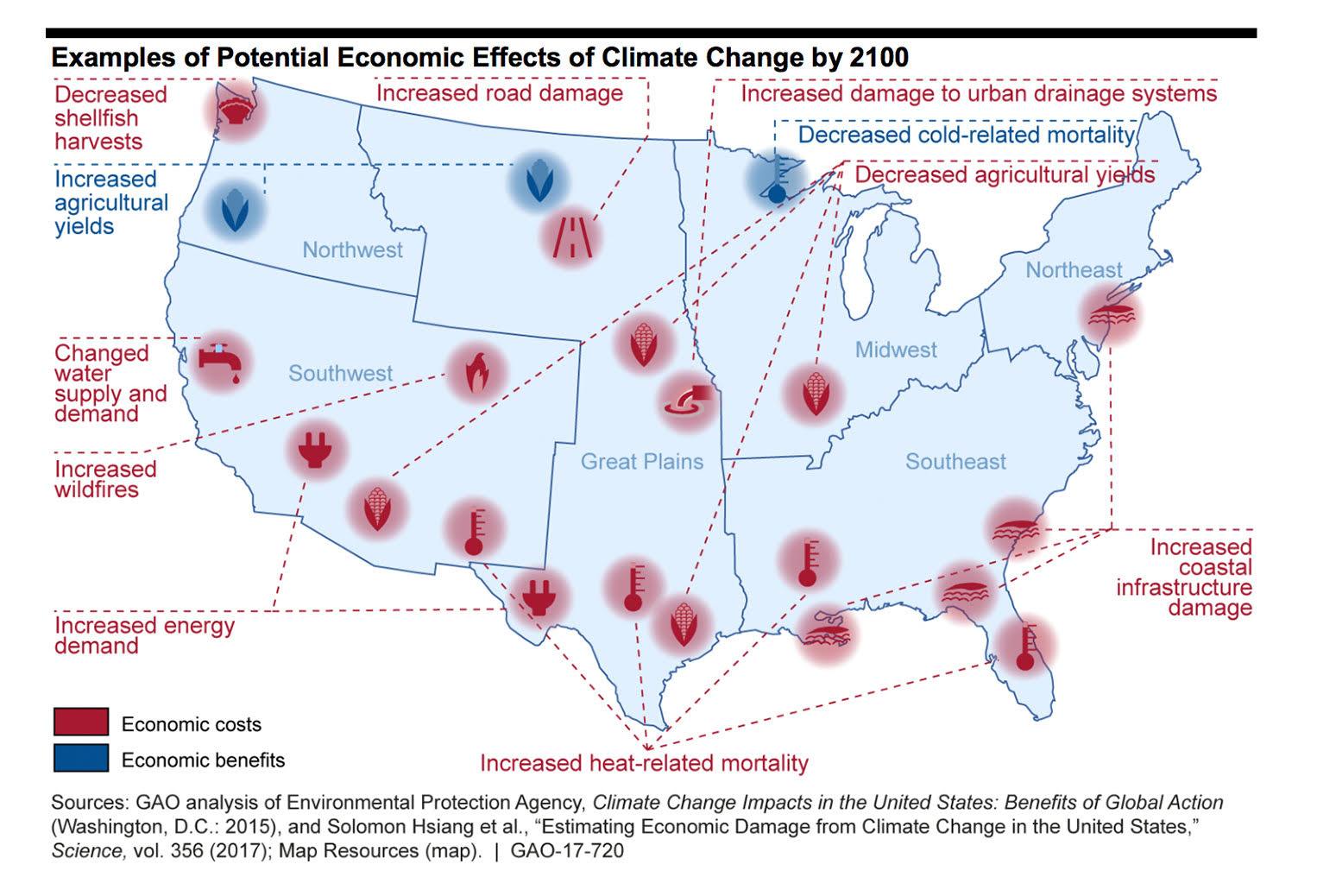How we adapt to climate change is going to be the biggest challenge facing society over the next half century. Barring a miraculous technological innovation (about a 10% chance), how and when the climate changes is going to be a significant economic issue. Most people and many businesses remain unprepared for both the economic and investing effects of these changes.
We continue to see signs that Insurance companies will be dealing with increased storm activity; agriculture will confront longer growing seasons but increased pests and insects. Depending upon where you live, Droughts, Floods, and Wildfires are going to be increasingly common. Infrastructure costs — already an underfunded sector of the economy — will rise.
As always, my advice to climate change deniers is to pay up for waterfront property in South Florida, and buy some coal companies for your portfolios.
Here is what the GAO has to say:
Methods used to estimate the potential economic effects of climate change in the United States—using linked climate science and economics models—are based on developing research. The methods and the studies that use them produce imprecise results because of modeling and other limitations but can convey insight into potential climate damages across sectors in the United States.
The two available national-scale studies that examine the economic effects of climate change across U.S. sectors suggested that potential economic effects could be significant and unevenly distributed across sectors and regions. For example, for 2020 through 2039, one study estimated between $4 billion and $6 billion in annual coastal property damages from sea level rise and more frequent and intense storms. Also, under this study, the Southeast likely faces greater effects than other regions because of coastal property damages (see figure).
Information about the potential economic effects of climate change could inform decision makers about significant potential damages in different U.S. sectors or regions. According to several experts and prior GAO work, this information could help federal decision makers identify significant climate risks as an initial step toward managing such risks. This is consistent with, for example, National Academies leading practices, which call for climate change risk management efforts that focus on where immediate attention is needed. The federal government has not undertaken strategic government-wide planning to manage climate risks by using information on the potential economic effects of climate change to identify significant risks and craft appropriate federal responses. By using such information, the federal government could take an initial step in establishing government-wide priorities to manage such risks.
Source: GAO



What's been said:
Discussions found on the web: